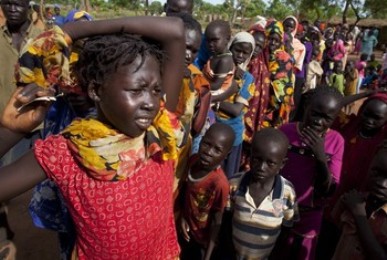27,500 Sudanese refugees return to S. Kordofan: report
November 20, 2016 (KHARTOUM) – UN Office for the Coordination of Humanitarian Affairs (OCHA) in Sudan said that 27.500 Sudanese refugees have returned from Yida camp in South Sudan to South Kordofan State.

The continuation of the armed conflict and food insecurity in South Sudan pushed Sudanese refugees to return to South Kordofan, said the Famine Early Warning System website.
The refugees mainly returned to Sudan People’s Liberation Movement-North (SPLM-N) held areas in western, central, and eastern parts of the Nuba Mountains in South Kordofan. a limited number of returnees resettled in government-controlled areas, according to the FEWS NET report.
Different sources report the increase of clashes in South Sudan’s Unity region where Yida camp is located. Also, armed gangs are reportedly active in the area. This situation complicate the transportation of humanitarian assistance to the camp which is located near the Sudanese border.
The unwillingness of Sudanese refugees to relocate to the new Pamir refugee site is also mentioned by FEW.net as one of the causes that pushed them to return to Sudan. Most returnees return to Sudan after the end of the rainy season to cultivate, but USAID funded agency said they would not be able to do that this year.
The UN agency for refugees (UNHCR) in South Sudan says the number of “registered” Sudanese refugees in Unity region has decreased by about 15,000 people between 1 June to 31 October 2016.
The eruption of armed conflict in South Kordofan between the government and SPLM-N fighters in June 2011 forces Sudanese in the Nuba Mountains to flee to Yida.
Talks for a humanitarian cessation of hostilities brokered by African Union are stalled over the government refusal to allow direct transit of 20% of the humanitarian assistance through the Ethiopian border.
(ST)
